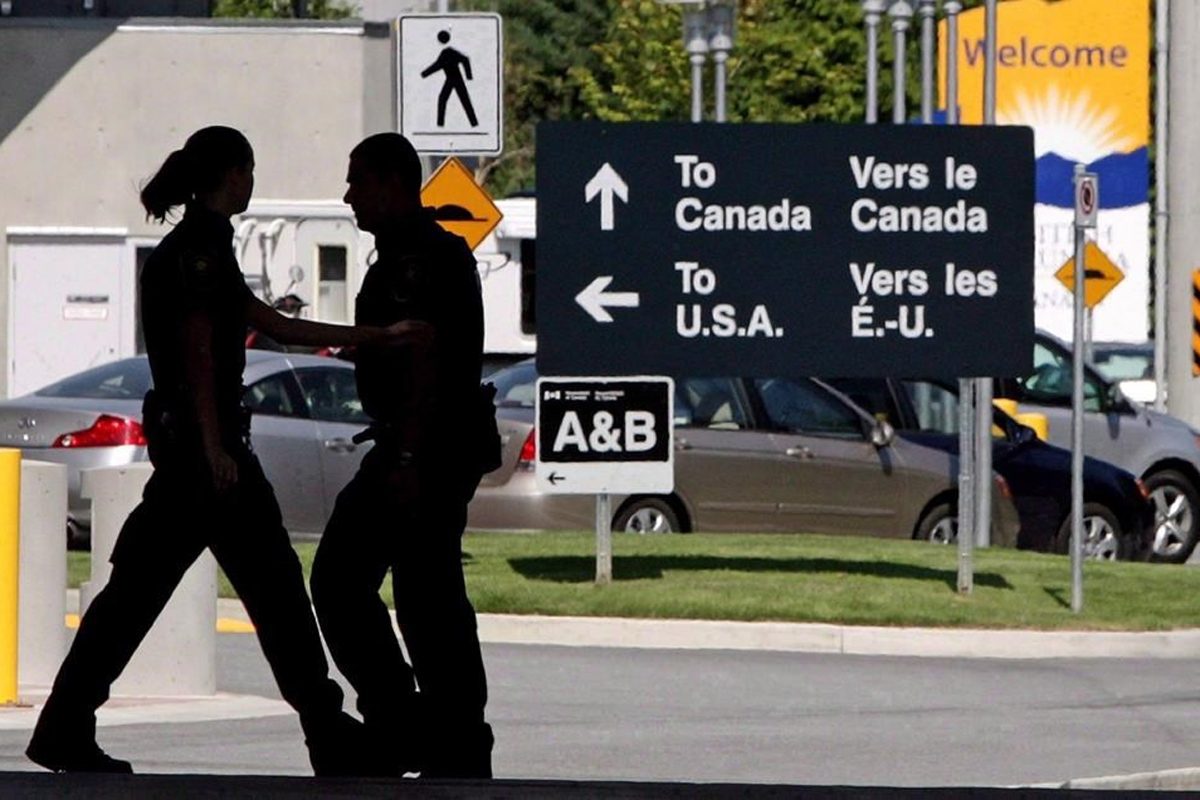A Guyana-born Toronto imam is among a number of Canadian Muslims who have been denied entry from Canada into the United States in what some immigration lawyers say is a growing trend.
According to a Canadian Broadcasting Corporation report that was published on Friday, at least six Canadian Muslim men had been denied entry at the United States border in the previous two weeks.
“The men and their families, all of whom are Canadian citizens, were given little in the way of explanation by border officials for the decision to deem them inadmissible,” the report said, referring to Imran Ally, who was born in Guyana, and another Muslim, who is an Iraqi Turkmen community leader, after they were denied entry.
It further noted that neither Guyana nor Iraq is among the seven Muslim-majority countries subject to United States President Donald Trump’s “Muslim ban” executive order, which essentially blocks refugees and visitors from those countries from entering the US.
Ally, a resident imam at the Toronto and Regional Islamic Congregation (TARIC) mosque for the last 20 years and a chaplain with Peel Regional Police, was travelling with his wife and three children to attend his best friend’s daughter’s wedding in the New York City borough of Queens. He had been set to serve as emcee.
The report explained that Ally and his wheelchair-bound, special-needs son were held at the Peace Bridge crossing near Fort Erie, Ontario for more than five hours. During that time, they faced three separate rounds of questioning by plainclothes and uniformed officers. Some of the questions centred on his charitable endeavours related to resettling Syrian refugees.
Ally was questioned about his work as a religious leader, photographed and fingerprinted and ultimately denied entry because he was told his name “matches that of a bad guy.”
He was driven back to the Canadian border by a police cruiser, cancelling his long-planned wedding role. “I knew going to the US for the first time wouldn’t be a red carpet welcome. I (knew) that I’d probably have to answer questions, I might even have to spend a long time. We were prepared for all of this, but never in my wildest dreams did I think they’d say I’m inadmissible because of my name,” Ally was quoted as saying. “The way it was done — they really at the end made me feel like I’m a criminal,” he added.
Ally was told to apply for visas at the US consulate in Toronto before returning to the border to seek entry, which the report said is an unusual process for people who hold Canadian passports.
‘Being targeted’
According to the report, immigration firm CILF — Caruso Guberman Appleby is representing the six men and lawyers there say that if they have been seeing heightened activity, that suggests that there may be many other Canadian nationals facing similar problems at the border.
“We’ve seen a lot more in the last few weeks and we don’t know what to attribute it to. We know the climate there in the US has changed, it’s a bit different, but at the same time there are processes and procedures and people should be afforded opportunities to challenge a case,” Daud Ali, a lawyer at CILF, was quoted as saying by the CBC.
“But it’s hard to know what you’re going up against when you’re not told why you’re denied entry. The fact that they’re all Muslims, that raises some concerns about whether these people are being targeted or if this is a new form of some sort of ban…,” he added.
Joel Guberman, a partner at the firm, said that in his 40 as an immigration lawyer, he had never seen such “a Kafkaesque scenario.”
The CBC asked the US Customs and Border Protection (CBP) if there has been a new directive in recent weeks with respect to Muslim travellers from Canada and a spokesperson said the agency “has not had any new policy changes.”
While unable to speak to specific cases because of privacy laws, the CBP spokesperson added that “applicants for admission bear the burden of proof to establish that they are clearly eligible to enter the United States. In order to demonstrate that they are admissible, the applicant must overcome all grounds of inadmissibility.”
The report added that no Canadian citizen has a “right” to enter the US as entry happens at the sole discretion of the U.S. customs officers on duty — and they have a lot of latitude to ask questions to determine the admissibility of a foreign national.
CBP lists more than 60 grounds for inadmissibility divided into several major categories, including health-related reasons, criminality, security reasons, illegal entry and immigration violations, and documentation requirements.





